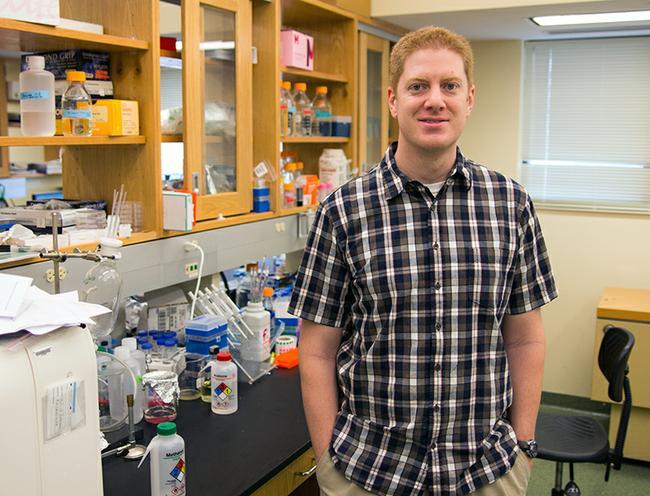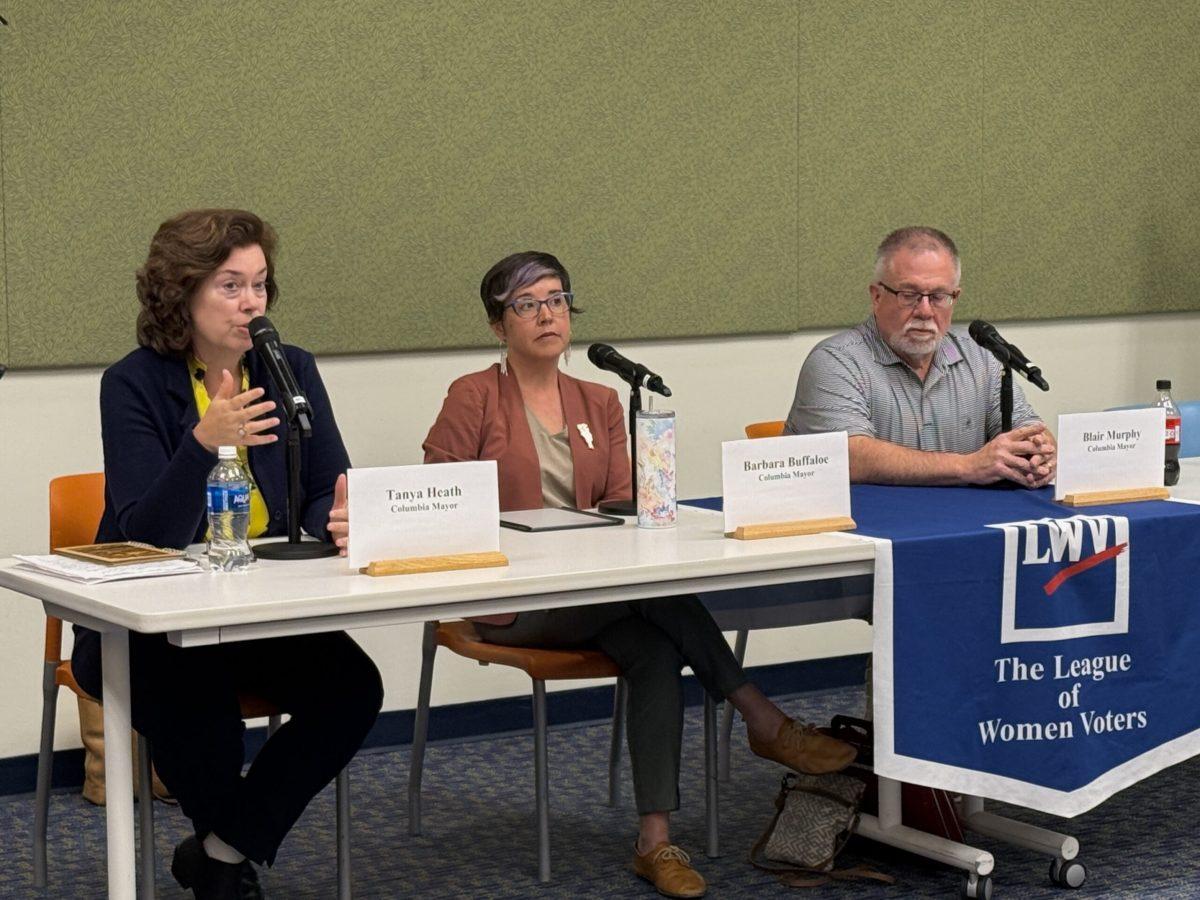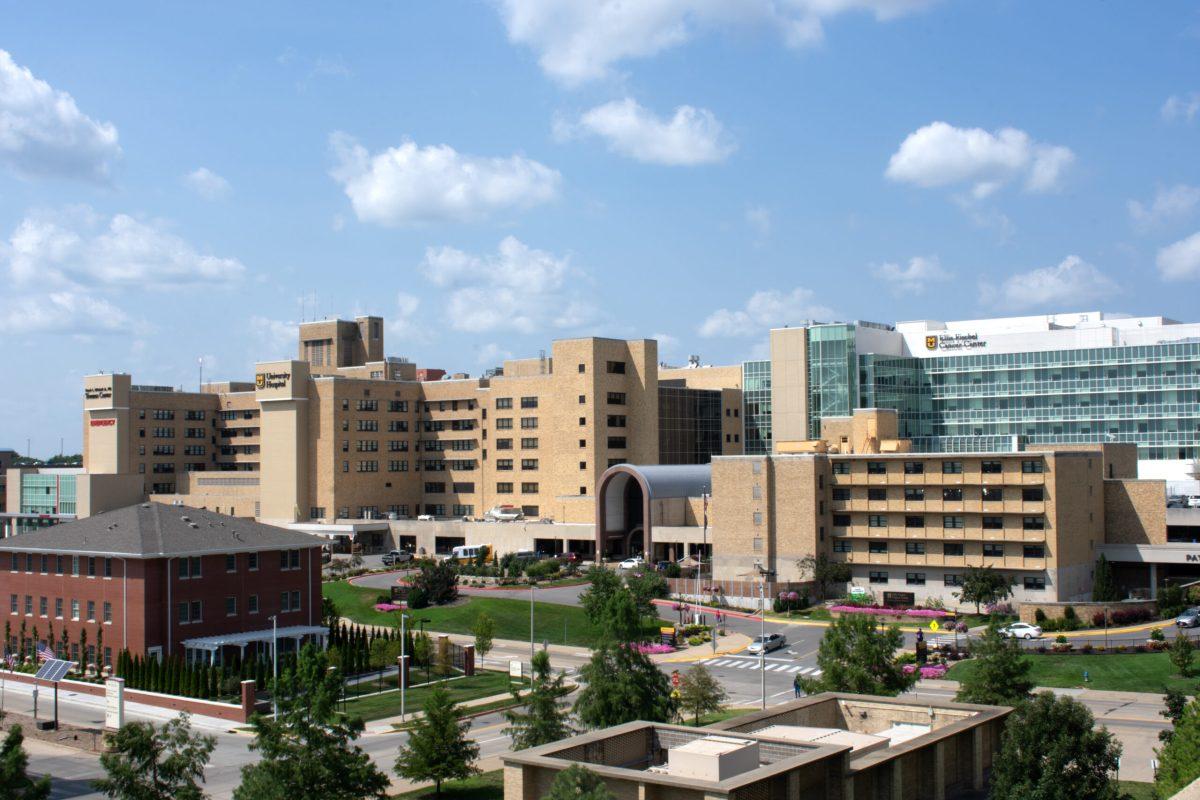Finding a treatment to HIV or cancer might not be far away for one MU professor.
Peter Cornish, a biochemistry assistant professor in the MU School of Medicine, became the first MU recipient of the Pew Scholar Award.
“The Pew Scholars Program in the Biomedical Sciences provides funding to young investigators of outstanding promise in science relevant to the advancement of human health,” the Pew Charitable Trusts website stated.
Cornish graduated from Graceland University with bachelor’s degrees in biology, chemistry and mathematics in 2000. He received his doctorate in biochemistry from Texas Tech University in 2005. After five years of working in a post-doctoral program at the University of Illinois-Urbana-Champaign, Cornish arrived at MU in 2010, where he has conducted research on disrupting “protein factories” inside bacteria and viruses throughout the body.
“The ‘protein factory’ is called the ribosome,” Cornish said. “Through a process called translation, it reads a message and converts that into a protein sequence. So, all of the protein in the body is made by the ribosome. Using single molecule biophysics, we can investigate how the ribosome moves.”
HIV-1 produces necessary proteins through translation. A special event in translation called “frame shifting” occurs when a nucleotide gets inserted into or deleted from the sequence and alters the coding. Cornish had the idea to target this process by developing drug molecules. He said if successful, he could inhibit production of HIV.
“Our bodies’ natural defenses are constantly working to keep us healthy,” Cornish said in an MU News Bureau news release following the announcement. “We only get sick when the viruses or bacteria are able to replicate enough to overwhelm our defenses. If we can determine how to stop them from replicating, the body’s defenses can take over and get rid of the invaders naturally.”
Cornish’s research, if continued, might also apply to cancer — cells grow rapidly, meaning proteins must be produced quickly. Cornish said he could develop techniques similar to those in his HIV research to target cancer cells and their ability to produce proteins.
Scientists must first research the fundamentals of the ribosome and communication links among molecules before drug development can start.
Though his research is only at the molecular level, Cornish received national recognition through the Pew Scholar Award, which grants a $240,000 prize awarded over four years.
“Peter is a thoughtful, careful and innovative young scientist,” said Dr. Gerald Hazelbauer, MU biochemistry professor and department chair. “He is poised to make seminal contributions to our understanding of basic biological phenomena because he can combine his appreciation of fundamental molecular processes of life with an ability to understand and utilize emerging, cutting-edge techniques that are rooted in sophisticated physics.”
The Pew National Advisory Committee received applications from 170 schools nationwide and selected 22 scientists for the award.
“I was pretty excited,” Cornish said. “There is a name you can carry with it. It helps early on (in your career).”
Each university may only send one nomination per campus.
“Peter was an ideal candidate for MU because he had all the most desirable attributes — superb training, research that addressed fundamentally important issues in biomedical science and the utilization of an emerging, cutting-edge technology,” Hazelbauer said.







